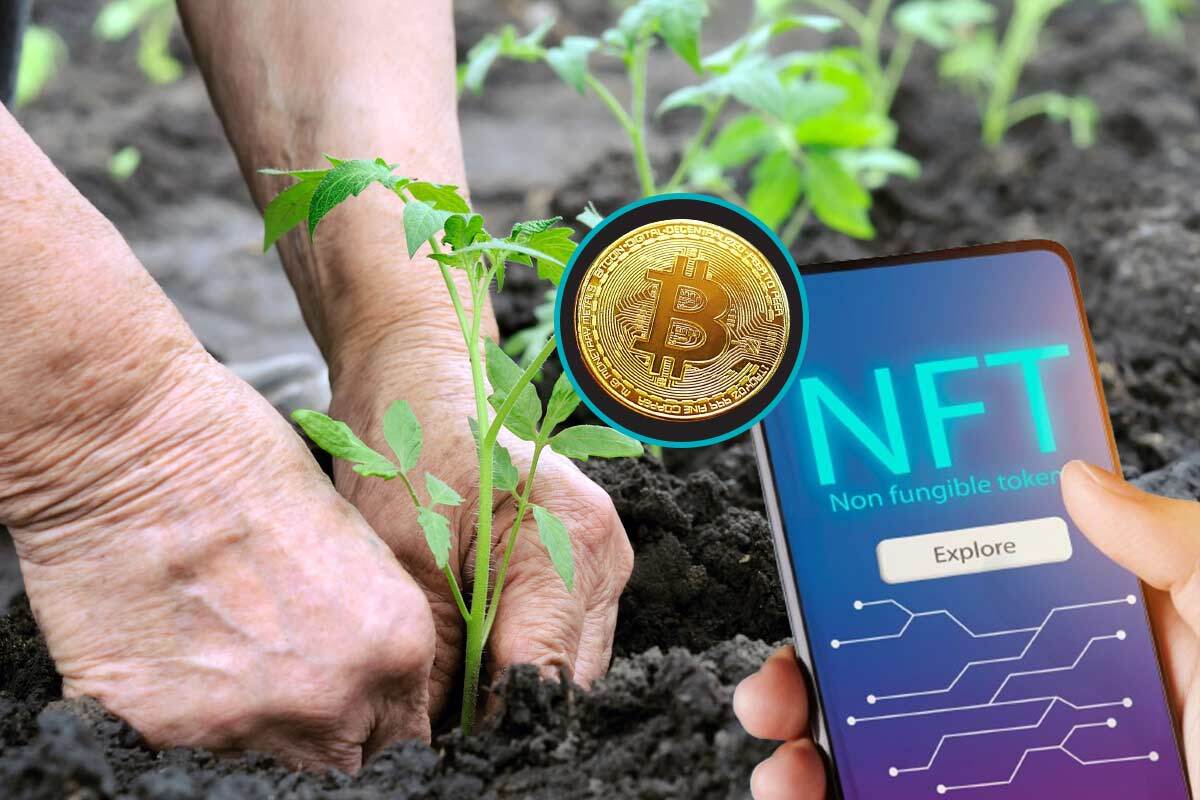The Usefulness of NFT in the Farming Industry
- November 24, 2023
- Jennifer Moore

Non-fungible tokens (NFT) are digital tokens that indicate assets like physical assets, music, and digital art. These, however, need a wallet, blockchain networks, and certain tokens. Yield farming may include depositing cryptos in decentralized pools to receive rewards. NFT in farming may include contribution to liquidity pools, plan creation, disbursement of loans, and acquiring and digital money. The most popular place to cultivate NFTs is blockchain games. In such games, users can earn game tokens.
NFT Production
Non-fungible tokens have been one of the most popular items in cryptocurrency in the last few years. Users can create NFT tokens on NFT platforms. These platforms can upload it as a piece of art on the blockchain. It will help with artwork and select the right blockchain. Additionally, one can list those tokens for sale.
Uses of NFT in Farming
Non-fungible tokens have a vast potential to solve or minimize problems in agriculture. It is a known fact that agriculture, despite being a major occupation in the world, faces recurring problems. Most of these problems arise because of old-school methods used in farming. These methods lead to lesser profitability. It is also a fact that these back-dated methods adversely affect the efficiency, crop quality, and production costs of farmers. Non-fungible tokens can minimize or solve these problems to create an immutable record on the blockchain. It leads to more security and permits real-time data on agricultural products in the entire supply chain. Moreover, the implementation of NFTs can reduce costs and have a positive impact on profitability.
NFTs can integrate into supply chain processes and help farmers to gain further insight into the market conditions. It may improve the traceability of their products. This traceability feature helps reduce the chances of fraud, improves sustainability practices, and ensures food safety. It also makes the supply chain more efficient. Additionally, the marketability of products can improve considerably because of these. For example, Dimitra offers innovative solutions for the farming sector. It helps farmers to improve their efficiency by having a proper technology stack. This helps promote transparency, streamline financial processes, and fair pricing with extra scopes.
Integration of NFT in Farming Examples
Non-fungible tokens can improve supply chain management and blockchain applications. For example, Dimitra revolutionizes farming with utility NFTs. It collaborates with one million avocados in Kenya. This NFT also supports farmers with fertilizers, seedlings, and digital platform access. Dimitra also provides a certification program where farmers can get premiums repaid from crop harvests.
Also Read- Changpeng Zhao Steps Down! But Why? Exchanges Stay Safe!
Bottom Line
Non-fungible tokens can have multiple applications and utilities. However, the use of NFT in farming can bring landmark changes in the agricultural sector. Many farming problems can be reduced considerably due to NFTs. It is a fact that supply chains can become more efficient, improve sustainability practices, establish direct consumer connections, and capitalize on important data to make better decisions with the help of NFTs. Farmers may benefit from fair pricing and higher levels of transparency too.
Categories
- AI (9)
- Altcoins (10)
- Banking (10)
- Bitcoin (133)
- Bitcoin ETF (11)
- Bitcoin Price (30)
- Blockchain (49)
- Brokering World Hunger Away (16)
- Business (9)
- CBDC (11)
- COVID-19 (3)
- Crypto ATMs (1)
- Crypto Banking (17)
- Crypto Bill (1)
- Crypto business owner platform (31)
- Crypto Investment (3)
- Crypto Markets (5)
- Crypto Payment (30)
- Crypto Prices (1)
- Crypto Trading (92)
- Cryptocurrency (401)
- Cryptocurrency Exchange (108)
- Data Visualization (2)
- Decentralized Finance (7)
- DeFi Payment (9)
- DEX (3)
- Digital Currency (22)
- Ethereum (2)
- FAQ (6)
- Finance (24)
- Financial Equality (4)
- Financial Freedom (8)
- Forex (24)
- ICO (2)
- Investment (11)
- Mining (3)
- News (66)
- NFTs (2)
- P2P (1)
- PayBitoPro (692)
- PayBitoPro Coin Listing (6)
- PayBitoPro Exchange (2)
- Post COVID Digital Transformation (1)
- Press Release (130)
- Privacy & Security (3)
- Real Estate (1)
- Stablecoin (4)
- Technology (14)
- Uncategorized (3)
- US Presidential Election (2)
- Utility Coin (1)
- Web3 business (3)
- Web3 Wallets (2)
- White Label Crypto Exchange (6)
Recent Posts
- Crypto Payment Processor for High-Risk Merchants: A Complete Guide to Secure, Fast & Reliable Payments
- Why Blockchain Education Is Key for Web3 Adoption
- Web3 Business Marketing: Building Community and Brand for Your Crypto Venture
- Why Blockchain Awareness Is Critical Before You Dive Into Web3
- Why Market Research Is the Foundation of Every Successful Web3 Business





